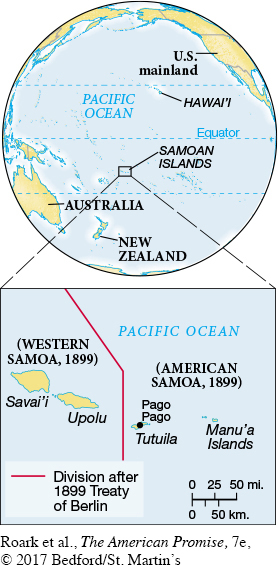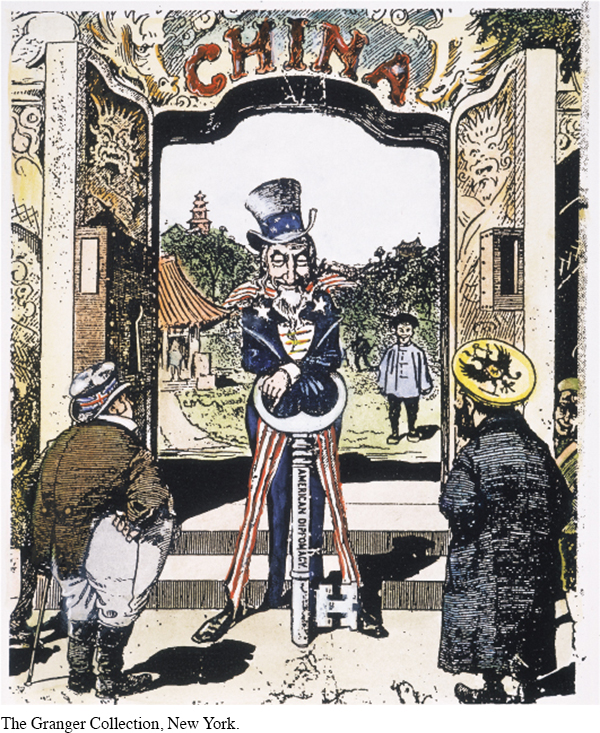The American Promise: Printed Page 577
The American Promise, Value Edition: Printed Page 527
The American Promise: A Concise History: Printed Page 600
The Monroe Doctrine and the Open Door Policy
The emergence of the United States as a world power pitted the nation against other colonial powers, particularly Germany and Japan, which posed a threat to the twin pillars of America’s expansionist foreign policy. The first, the Monroe Doctrine, came to be interpreted as establishing the Western Hemisphere as an American “sphere of influence” and warned European powers to stay away or risk war. The second, the Open Door, dealt with maintaining market access to China.
American diplomacy actively worked to buttress the Monroe Doctrine, with its assertion of American hegemony (domination) in the Western Hemisphere. In the 1880s, Republican secretary of state James G. Blaine promoted hemispheric peace and trade through Pan-
In Central America, American business triumphed in a bloodless takeover that saw French and British interests routed. The United Fruit Company of Boston virtually dominated the Central American nations of Costa Rica and Guatemala, while an importer from New Orleans turned Honduras into a “banana republic” (a country run by U.S. business interests). Thus, by 1895, the United States, through business as well as diplomacy, had successfully achieved hegemony in Latin America and the Caribbean, forcing even the British to concur that “the infinite resources [of the United States] combined with its isolated position render it master of the situation and practically invulnerable as against any or all other powers.”
The American Promise: Printed Page 577
The American Promise, Value Edition: Printed Page 527
The American Promise: A Concise History: Printed Page 600
Page 578
At the same time that American foreign policy warned European powers to stay out of the Western Hemisphere, the United States competed for trade in the Eastern Hemisphere. As American interests in China grew, the United States became more aggressive in defending its presence in Asia and the Pacific. In 1889, it risked war with Germany to guarantee the U.S. Navy access to Pago Pago in the Samoan Islands, a port for refueling on the way to Asia. Germany, seeking dominance over the islands, sent warships to the region. But before fighting broke out, a typhoon destroyed the German and American ships. The potential combatants later divided the islands amicably in the 1899 Treaty of Berlin.
In the 1890s, China, weakened by years of internal warfare, was partitioned into spheres of influence by Britain, Japan, Germany, France, and Russia. Concerned about the integrity of China and no less about American trade, Secretary of State John Hay in 1899–
